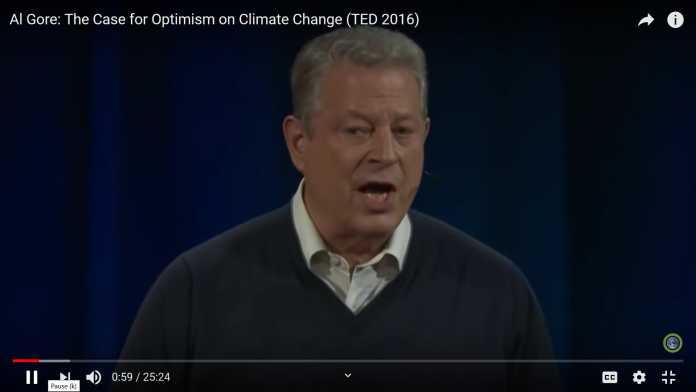Al Gore falsely attempted to blame fossil fuels for raising the coronavirus death rate during a February 27 MSNBC interview. In reality, economic prosperity brought by the use of abundant, affordable fossil fuels results in lower death rates from viruses and epidemics. Also, viruses like influenza and COVID-19 thrive in cold climate conditions and are inhibited by warmer temperatures.
“This climate crisis and the COVID-19 pandemic are linked in some ways,” Gore said on MSNBC, as reported by The Hill. “The preconditions that raise the death rate from COVID-19, a great many of them, are accentuated, made worse by the fossil fuel pollution.”
Scientists have long known that cold temperatures are a key factor in the annual death toll for influenza, which kills an average of approximately 36,000 Americans per year.
The U.S. Centers for Disease Control (CDC) documents that flu season ramps up when the weather turns cold, and then peters out when warm temperatures return. According to CDC, “influenza activity often begins to increase in October. Most of the time flu activity peaks between December and February, although activity can last as late as May.”
According to Harvard University researchers, “In the southern hemisphere, however, where winter comes during our summer months, the flu season falls between June and September. In other words, wherever there is winter, there is flu. In fact, even its name, “influenza” may be a reference to its original Italian name, influenza di freddo, meaning “influence of the cold”.
“[A]t least in regions that have a winter season, the influenza virus survives longer in cold, dry air, so it has a greater chance of infecting another person,” the Harvard researchers added.
Scientists are still learning about COVID-19, but preliminary evidence indicates warmer temperatures have either minor or significant impacts reducing the spread and harm of coronavirus. Warmer temperatures certainly do not make COVID-19 worse.
According to a publication released by Harvard Medical School, a recent study by the National Academies of Sciences “found that in laboratory settings, higher temperatures and higher levels of humidity decreased survival of the COVID-19 coronavirus.” The scientists are currently attempting to determine whether this will also be the case in natural environments outside the laboratory.
In fact, cold temperatures kill many more people – for a variety of reasons – than warm or hot temperatures.
In an article published in the Southern Medical Journal in 2004, W. R. Keatinge and G. C. Donaldson noted, “Cold-related deaths are far more numerous than heat-related deaths in the United States, Europe, and almost all countries outside the tropics, and almost all of them are due to common illnesses that are increased by cold.”
More recently in a study published in the Lancet in 2015, researchers examined health data from 384 locations in 13 countries, accounting for more than 74 million deaths, and found cold weather, directly or indirectly, killed 1,700% more people than warm or hot weather.
In his MSNBC interview, Gore doubled down on his reckless assertions. He attempted to link fossil fuels to high asthma rates, which he claimed are made worse by the coronavirus. However, even as air pollution in the United States has consistently and sharply declined since the 1970s, asthma rates have increased substantially. This contradicts the assertion that air pollution causes asthma.
As explained by researcher Joel Schwartz in his paper, “Facts Not Fear on Air Pollution,” the incidence of asthma rose 75 percent from 1980 to 1996, and nearly doubled for children. However, the U.S. Environmental Protection Agency documents that air pollution has declined 74 percent since the 1970’s, over the same time period that asthma worsened.
In the end, climate change is neither causing nor exacerbating any identifiable illness or disease, be it COVID-19 or anything else. To the extent a modestly warming planet may impact COVID-19, the impact is almost certainly to reduce the spread of the disease and save many human lives.

















